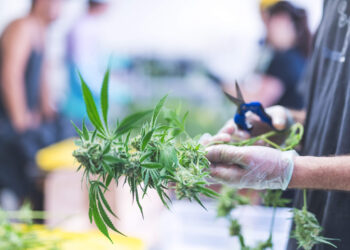
A technician at Alaska Airlines, based in Washington State, who was terminated after testing positive for marijuana in a random drug test had his termination overturned earlier this month following a formal challenge. The worker, whose identity remains undisclosed, vehemently denied any knowledge of using cannabis and questioned how THC had entered his system.
In July 2022, the employee, working as a lead aircraft maintenance technician (AMT), underwent a routine drug test which returned a THC metabolite level exceeding the minimum threshold. Due to the safety-sensitive nature of his role, he was immediately dismissed.
The worker acknowledged the accuracy of the test result but insisted he had not intentionally used marijuana. He speculated that inadvertent ingestion might have occurred at a recent block party or barbecue event he attended in Washington State, where cannabis is legal under state law.
At the time of his termination, the employee had served Alaska Airlines for over two decades, with a clean record and no prior disciplinary issues. He had been in a lead role since 2017.
The arbitration board, which included a neutral arbitrator, company representative, and union representative, concluded that Alaska Airlines lacked just cause to terminate the employee under union law. They emphasized the narrow nature of the ruling, stating that it did not suggest a relaxation of the airline’s strict drug use policies or that employees testing positive for marijuana could avoid termination simply by claiming accidental ingestion.
The case highlights the growing complexity of drug testing standards, especially in industries subject to federal regulation, in the evolving legal landscape surrounding cannabis. While this specific case does not challenge the existing drug policies significantly, it underscores a shift in perspectives and the need for more nuanced approaches to address marijuana use in safety-sensitive roles. As the United States grapples with the changing legal status of cannabis, the debate over when and how people are screened for marijuana use is likely to continue evolving.
This incident is just one example of how the collision between state and federal marijuana laws is forcing employers and policymakers to rethink their stance on cannabis use in the workplace, particularly in sectors like aviation. While there is still no universally accepted method to test for marijuana impairment, this case raises questions about the randomness of drug tests in certain roles and the need for more nuanced approaches to accommodate state-level cannabis legalization.
Read the whole article here.











